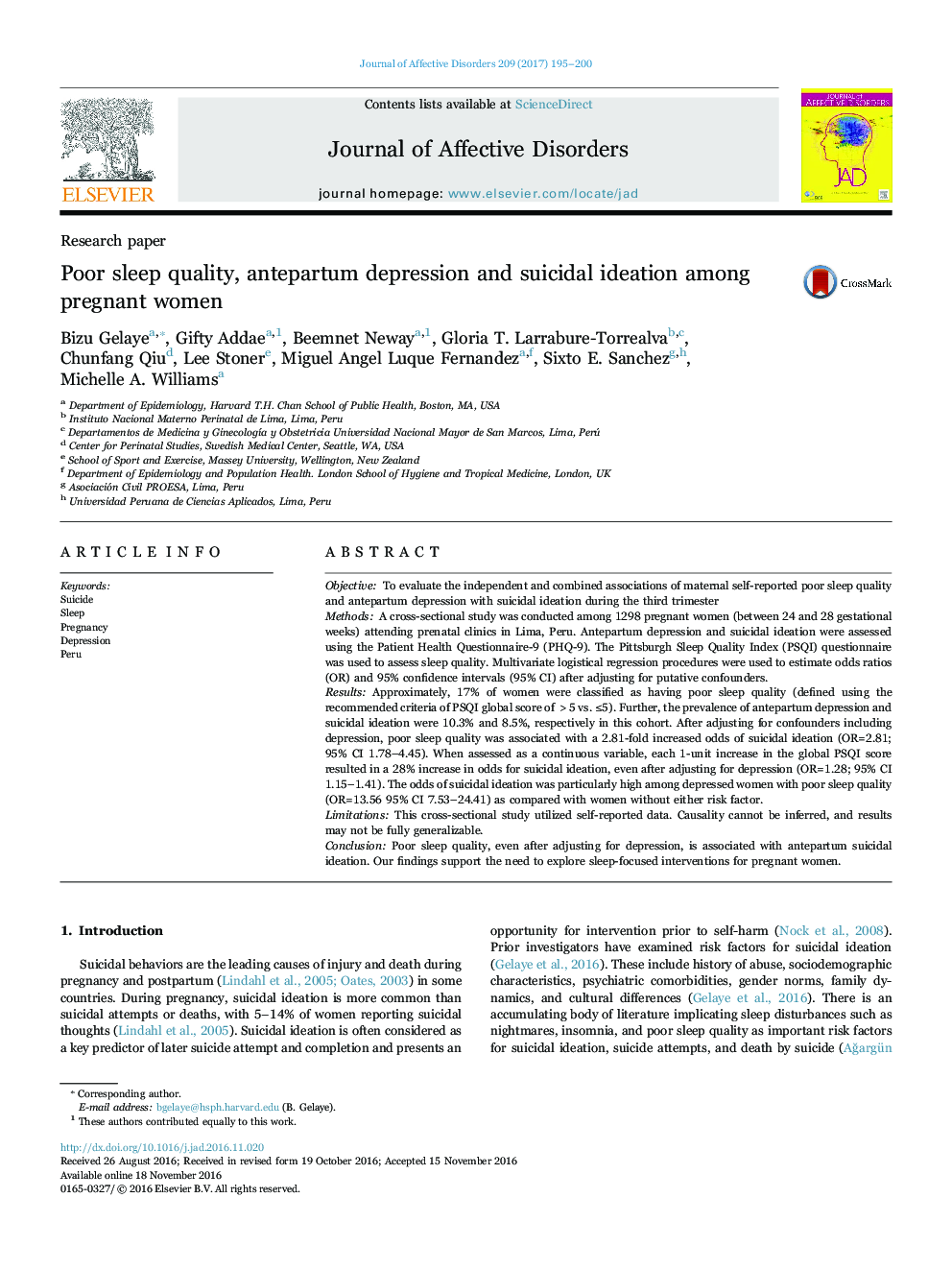| Article ID | Journal | Published Year | Pages | File Type |
|---|---|---|---|---|
| 5722286 | Journal of Affective Disorders | 2017 | 6 Pages |
â¢This is the first reported study to assess the independent relationship between sleep quality and suicidal ideation in late pregnancy.â¢Poor sleep quality, even after adjusting for depression, is associated with antepartum suicidal ideation.â¢Our findings indicate the need for careful monitoring pregnant women's suicidal behavior and depressive symptoms especially among those with poor sleep quality.
ObjectiveTo evaluate the independent and combined associations of maternal self-reported poor sleep quality and antepartum depression with suicidal ideation during the third trimesterMethodsA cross-sectional study was conducted among 1298 pregnant women (between 24 and 28 gestational weeks) attending prenatal clinics in Lima, Peru. Antepartum depression and suicidal ideation were assessed using the Patient Health Questionnaire-9 (PHQ-9). The Pittsburgh Sleep Quality Index (PSQI) questionnaire was used to assess sleep quality. Multivariate logistical regression procedures were used to estimate odds ratios (OR) and 95% confidence intervals (95% CI) after adjusting for putative confounders.ResultsApproximately, 17% of women were classified as having poor sleep quality (defined using the recommended criteria of PSQI global score of >5 vs. â¤5). Further, the prevalence of antepartum depression and suicidal ideation were 10.3% and 8.5%, respectively in this cohort. After adjusting for confounders including depression, poor sleep quality was associated with a 2.81-fold increased odds of suicidal ideation (OR=2.81; 95% CI 1.78-4.45). When assessed as a continuous variable, each 1-unit increase in the global PSQI score resulted in a 28% increase in odds for suicidal ideation, even after adjusting for depression (OR=1.28; 95% CI 1.15-1.41). The odds of suicidal ideation was particularly high among depressed women with poor sleep quality (OR=13.56 95% CI 7.53-24.41) as compared with women without either risk factor.LimitationsThis cross-sectional study utilized self-reported data. Causality cannot be inferred, and results may not be fully generalizable.ConclusionPoor sleep quality, even after adjusting for depression, is associated with antepartum suicidal ideation. Our findings support the need to explore sleep-focused interventions for pregnant women.
